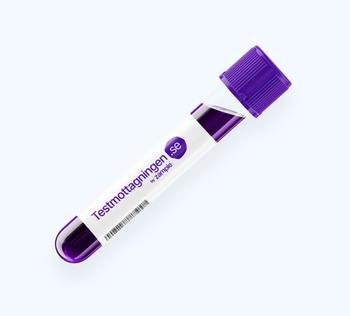What is magnesium and what is it good for?
Magnesium is a mineral that is responsible for many important functions and processes in the body's various biological processes, magnesium helps with, among other things:
- Muscle and nerve function – regulates nerve signals and muscle contractions
- Energy production – participates in the conversion of food into energy
- Skeletal health – helps build and maintain strong bones
- Blood sugar balance – affects insulin regulation and glucose metabolism
- Mental well-being – can reduce stress, anxiety and improve sleep
How do we get magnesium?
Magnesium is found naturally in many foods, mainly in leafy greens, legumes, whole grains, meat, fish and shellfish, which makes it relatively easy to get adequate levels through the diet. Magnesium is also found in our tap water – especially in municipalities with hard water.
What does a high magnesium level mean?
A high magnesium level in the blood, also known as hypermagnesemia, can be an indication of various health conditions and should be evaluated by a doctor. In mild cases of hypermagnesemia with slightly elevated values, no immediate symptoms may occur. In more severe cases, however, symptoms such as muscle weakness, fatigue, dizziness, confusion, diarrhea, nausea, vomiting, low blood pressure and irregular heartbeat may occur.
What can high magnesium levels be caused by?
High blood magnesium levels (hypermagnesemia) can be caused by chronic renal failure, treatment with magnesium-containing antacids and myxedema.
What can cause low magnesium levels?
Low blood magnesium levels (hypomagnesemia) can be caused by a variety of factors, including severe malnutrition, problems absorbing magnesium from food (for example, in steatorrhea or after intestinal resections), long-term nutrition through a drip, long-term diarrhea, chronic alcoholism, treatment with diuretics, kidney damage, overproduction of aldosterone and deficiency of parathyroid hormone.
Symptoms of magnesium deficiency
Magnesium deficiency is quite uncommon but can occur with dietary restrictions or certain diseases. If you have a magnesium deficiency, it can cause stunted growth, behavioral disorders and disturbances in heart function. Here are symptoms that can occur with magnesium deficiency:
- muscle weakness
- depression
- tremors
- nervous irritation
- tetanus
- cramps
- vasodilation.
How much magnesium do we need to get?
How much magnesium we need to get is determined by our gender and age. For women and girls over 14 years of age, a daily intake of 280 milligrams is recommended, for men and boys over 14 years of age, 350 milligrams per day is recommended.































